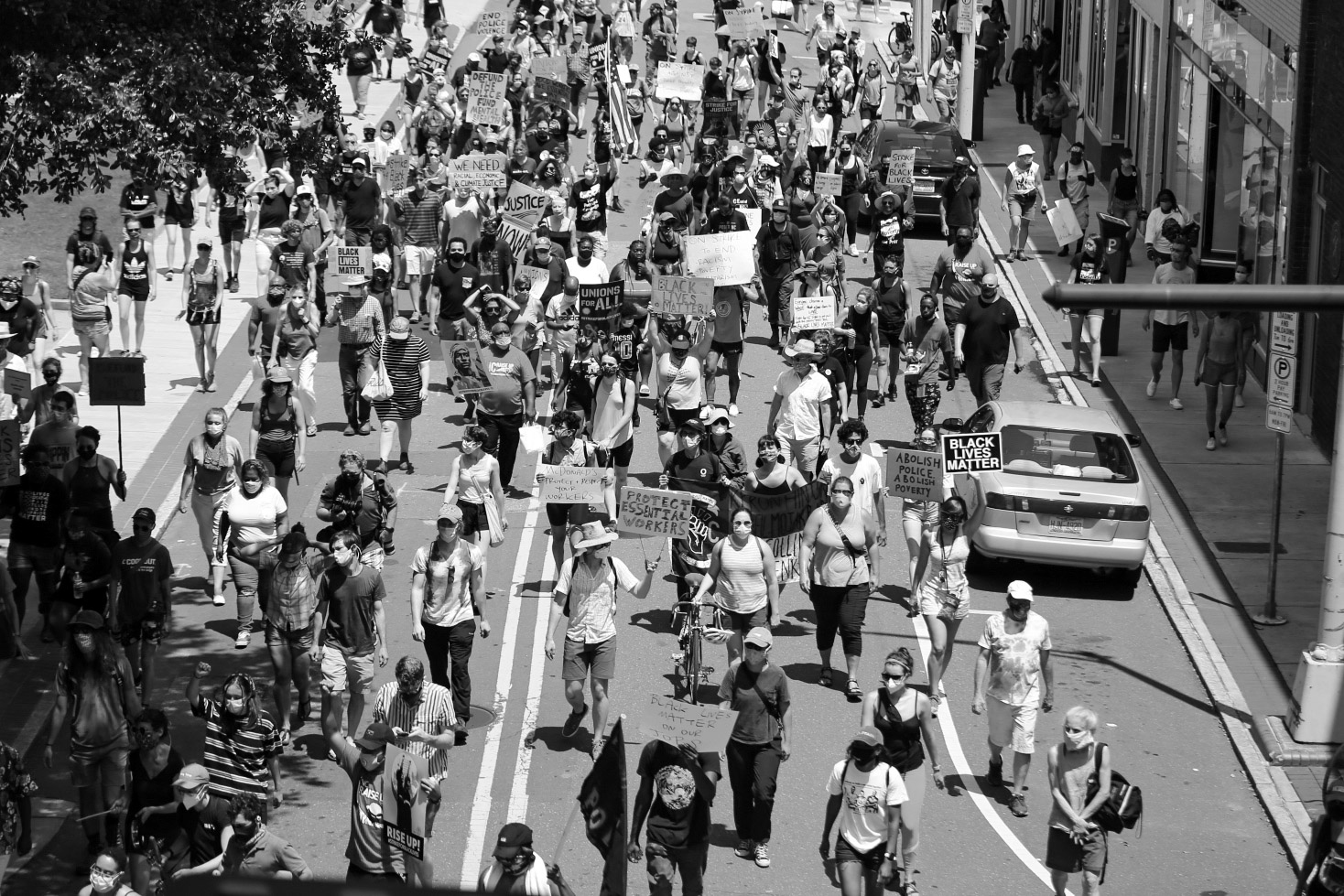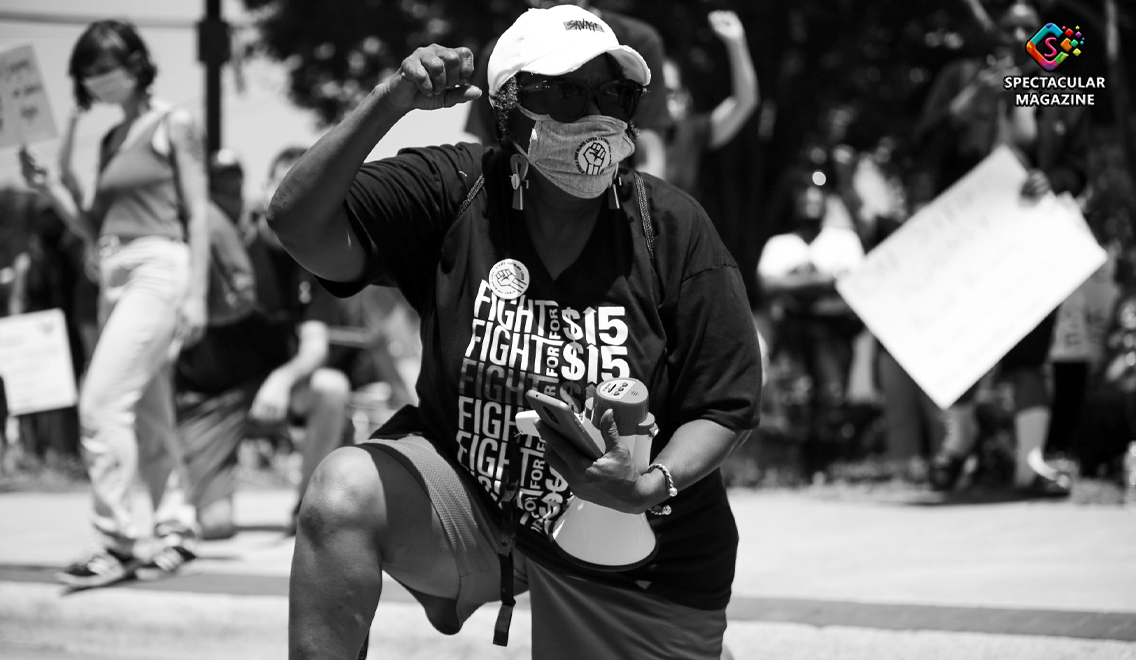July 20: Durham Fast-Food, Low Wage Workers Strike To Mark 12 Years Without A Raise
DURHAM — To protest 12 years without even a penny increase in the $7.25 federal minimum wage, fast-food and other low wage workers will strike and protest in front of a Durham McDonald’s on July 20. North Carolina workers will also hold strike rallies in Charlotte and Marion. Nationally, workers in more than 15 cities will strike to demand Congress and restaurant companies like McDonald’s, Burger King, and Wendy’s raise minimum pay to at least $15/hr.

The federal minimum wage has been stuck at $7.25 since July 24, 2009. Even as cities, states, and corporations across the country have raised wages to $15/hr, millions of Black and brown workers, particularly in the South, have been left behind because of racist preemption laws that block local governments from boosting pay and the U.S. Senate’s failure to act on $15. North Carolina’s legislature passed the state’s minimum wage preemption law in 2016 as part of the controversial “bathroom bill.”Though the portion of that law that enshrined discrimination against transgender people has been overturned, the minimum wage preemption provision is still in place today.
“It’s been 12 years since the minimum wage went up. Every year without a raise, things get worse for workers. Poverty goes up. People’s mental health gets worse— because making poverty wages can really wear you down mentally,” said Precious Cole, a Durham Wendy’s worker. “We need Congress to pass $15 for the whole country— because here in the South the states aren’t going to do it on their own.”
WHO: Striking fast food, restaurant & grocery store workers, joined by home care workers, community supporters with NC Raise Up/Fight for $15, and a Union
WHAT: Colorful strike-line and worker-led rally to demand Congress pass a $15 federal minimum wage
WHEN: Tuesday, July 20 at 12 pm
WHERE: McDonald’s, 4717 Apex Hwy, Durham, NC 27713
“Making $9 an hour, it’s a pain in the butt because you don’t have enough to buy food sometimes,” said Scotty Manan, a McDonald’s worker from Marion, NC.” Raising the minimum wage would honestly help a lot of people. I see homeless people in my town who just can’t afford rent. I’m going on strike to demand a $15 minimum wage because it’s the right thing to do.”

United in their demand for a $15/hr minimum wage for all workers, tipped restaurant workers, who are paid a subminimum wage of $2.13/hr, will also hold protests from coast to coast, including in New York, Washington, D.C., and Chicago. Tipped workers have been excluded from increases in the federal minimum wage for over half a century, and the subminimum wage for tipped workers has been stuck at $2.13/hr since 1991.
Now, companies like McDonald’s are sounding the alarm about a nationwide shortage of individuals willing to work in fast food amid the lingering pandemic and longstanding issues in the industry, from wage theft to sexual harassment to violence on the job. Employees at companies like Burger King are quitting en masse — changing the marquee outside the store to read “WE ALL QUIT” — to protest systemic issues such as poor management, understaffing, and overheating kitchens. Striking workers will offer a simple solution to employers struggling to hire and retain workers: pay $15/hr!
“I’m out here to demand $15 an hour for every worker in the country. After decades of low-paying jobs, I am finally making a living wage. I have 2 kids, so making $15 an hour is an absolute necessity to support them,” said Nathan Ruggles, an Amazon driver from Candler, NC.” But it was a fight to get Amazon to pay $15 in the first place. If we wait for all these companies to pay a living wage out of the goodness of their hearts, we will wait forever. Congress must pass a $15 federal minimum wage.”
A $15/hr minimum wage is also one of the most powerful tools available for combating racial wealth and income inequality. Increasing the minimum wage to $15/hr would boost the incomes of 32 million workers, including 59 percent of working families with incomes under the poverty line. Nearly one-third of Black workers would receive a raise, and one out of four workers who would benefit is a Black or Latina woman. According to researchers from UC Berkeley, raising the minimum wage in the 1960s directly led to a 20 percent drop in income inequality for Black Americans.
North Carolina workers will also go on strike in Charlotte and Marion. Nationally, workers will strike in Charleston, S.C., Detroit, Flint, Houston, Milwaukee, and St. Louis, with additional protest actions taking place across the country, including in Montgomery, AL, Tulsa, OK, and Norfolk, VA. Restaurant workers with One Fair Wage will protest in New York, D.C., Chicago, and Nashua, N.H.
‘No One Wants to Work’
Fast-food workers will also call on McDonald’s, one of the largest and most powerful employers in the world, to immediately raise starting pay to at least $15/hr. The burger giant recently announced that it netted nearly $5 billion in profits in 2020 and paid out nearly $4 billion in dividends to its shareholders.

Yet in one viral TikTok, a McDonald’s customer rolled up to a drive-thru lane only to find a sign reading, “We are short-staffed. Please be patient with the staff that did show up. No one wants to work anymore.” Other McDonald’s stores are offering $1000 signing bonuses or even new iPhones to try to attract new workers while ignoring the obvious solution: pay workers $15/hr.
Already, companies including Costco, Amazon, Starbucks, and Target have raised pay to $15/hr, understanding that higher wages are good for workers and good for business. Meanwhile, McDonald’s has only extended promises of minimal pay raises to workers at corporate-owned and operated stores, which make up a mere five percent of McDonald’s locations nationwide.
Workers with the Fight for $15 and a Union have been demanding a raise since long before the pandemic as part of a movement of fast-food cooks and cashiers led largely by Black and brown workers. Since 200 fast-food workers walked off the job in New York City in 2012, the movement has won tens of billions in raises for tens of millions of workers, passing $15 minimum wage laws in 10 states and putting more than 43% of the country on the path to $15. In April, President Biden signed an executive order raising the minimum wage to $15/hr for federal contractors and subcontractors, putting an additional 390,000 workers on the path to $15/hr.


